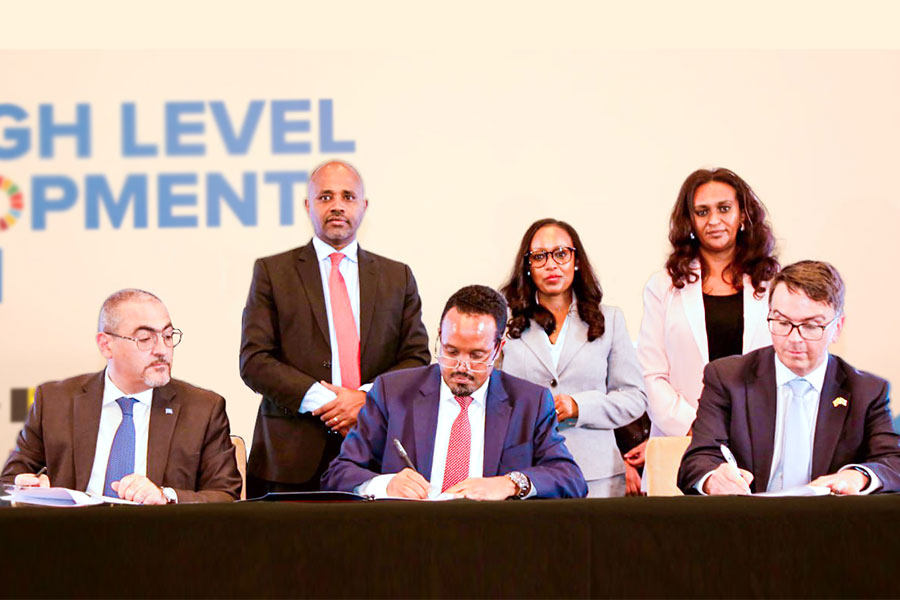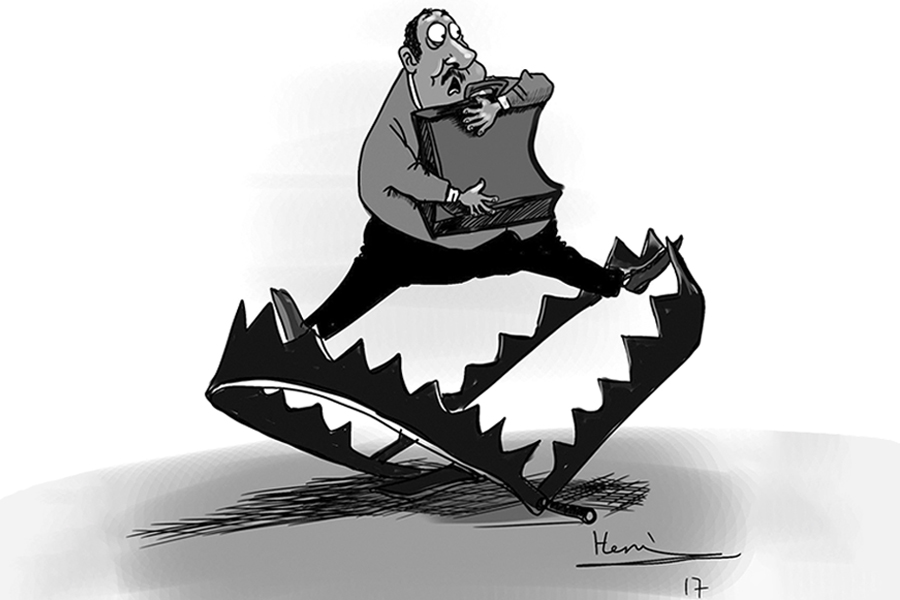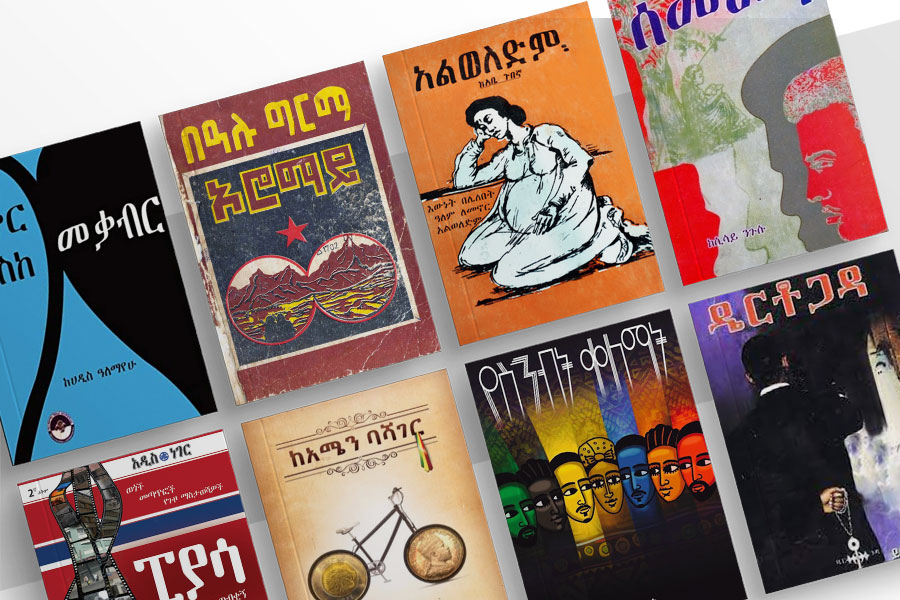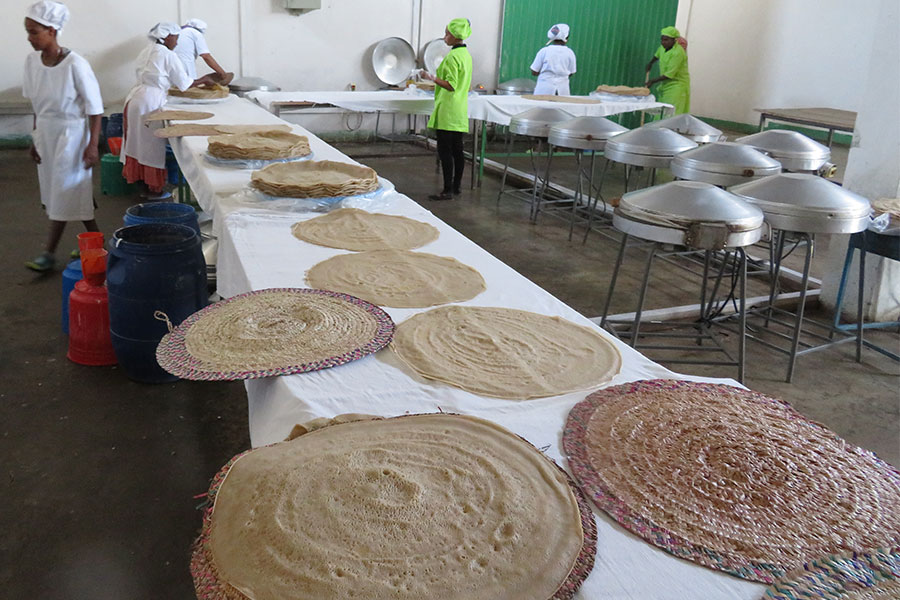
Jan 14 , 2023.
The longing for normalcy and a semblance of individual and collective security in Ethiopia has been frustratingly long.
However, if the quest for peace has anyone personifying it, Derartu Tulu, an Olympian, would have no match for her courage in speaking against violence and defending peace. She spoke truth to power – and to all those that dance to its tune – not when rhetorical peace was the day’s melody and the official narrative favoured it. She dared and stood for victims when it was too unpopular and with consequences in widespread backlash.
Derartu could have been the face of a domestic pacifist movement had there been one in a critical mass.
It should hardly be surprising to see Derartu, who also chairs Ethiopia’s Athletics Federation, accompanying athletes with international reputations travel to Meqelle – their native land - last week. They visited loved ones they had been separated from for over two years. The trauma and pain were evidently visible upon the family reunion at the airport, no less the sudden and overpowering grief from learning about the loss of family members.
These are dots in the bigger picture of human insanity unleashed on this land over the past two years, whose evolution has been in the making for the preceding several years. The incapacity to handle conflicts of worldviews (however polarised they may be) through peaceful, lawful and institutionalised settings continue to haunt the country and its citizens. The time, place and context could vary, but the content remains unchanged. See what is unfolding in the south and southwest of the country.
The visit by Derartu and the athletes to Meqelle was one of the most eventful moments last week. Its symbolic value offers hope to millions that eventually, the arch of history bends in favour of peaceful coexistence among conflicting parties and communities in society. This could be desirable and good but insufficient without transforming symbolism into substance leading to durable peace.
The symbolic gestures suddenly outpour in Addis Abeba and Meqelle following an accord in Pretoria are marks showing the deal could instead be for a tactical peace, gaining a respite from a mutually assured destruction. The daunting task ahead is to push it to a strategic depth.
The positive signs are there as the risks are apparent, for it is a deal that has fostered far too many enemies than allies. The accord in Pretoria and the subsequent declarations signed in Nairobi should lead to inclusive dialogue and broader negotiations to bring political settlements, something the Ethiopian polity has never been accustomed to.
Among the significant events last week that could give hope in pursuit of negotiated settlements is the decommissioning of heavy artilleries under the possession of armed forces in Tigray. In compliance with the declarations made in Nairobi, it is part of the “disarmament, demobilisation and reintegration (DDR)” of non-state armed forces, a United Nations lingua for demilitarising war-torn areas and helping restore “normal” living for communities.
However, concerns abound. Despite the progress on the ground invoking optimism among those who want to see the nightmare over, Ethiopia’s tactical peace shows its fragility and delicate nature when attracting the visits of three foreign ministers of countries of consequences.
China sent Qin Gang to Addis Abeba last week on his first overseas trip since his appointment as a Foreign Minister. The highlight of his visit may have been the inauguration of a headquarters it financed for the African Centre for Disease Control (CDC), a continental command centre for fighting disease ironically modelled the American CDC.
Nonetheless, Gang’s visit also signalled the importance China attaches to its bilateral relationship and the high stakes in Ethiopia. Beijing, alongside Moscow, has proven its steadfast alliance with Addis Abeba, shielding it from the gaze of the UN Security Council’s tougher resolutions. The Foreign Minister’s arrival at a delicate moment reveals his country’s concern over restoring “peace” in the north, lest the guns remain silent.
The European Union (EU) remains the most vocal of all internationals against the civil war in Ethiopia ever since its full-blown outbreak in November 2020. To its credit, Brussels had signalled its deep concerns about the possibilities of militarised conflicts even before the war, thereby exposing the limitations of its leverage to help change course. Its principled position against war should no less be admirable.
Joseph Borell, EU’s foreign policy chief, has yet to visit Ethiopia, despite his pronounced positions expressed in regular terms. So is Ursula von der Leyen, president of the Commission, has yet to make her way to Addis Abeba; she is perhaps the most extensively travelled European official.
Its Parliament passed a biting resolution in October last year, winning the votes of all but four MPs (58 abstained), calling for a cessation of hostilities, withdrawal of Eritrean forces, accountability to war crimes, and sanctioning perpetrators. However, the EU is not more than an economic community, a trading bloc with common policies on trade. Its member countries are free to pursue their individual foreign policy goals and priorities without their respective capitals bothering to harmonise between them or Brussels.
China may hold a quarter of Ethiopia’s external debt stock of over 27 billion dollars. European Union matters for Ethiopia, no less. Away from the limelight, the EU and its partners paid over three billion dollars in five years beginning in 2015, supporting the vital work of helping the poor overcome vulnerabilities. It has been one of the significant sources of finance for the protection of essential services, a critical program that supports the livelihoods of tens of millions.
Brussels’ vocal stance against the civil war may have estranged its senior officials from their counterparts in Addis Abeba. The Ethiopian debacle has demonstrated that Paris, Berlin, Rome and Madrid were not in tandem with Brussels in their responses to the civil war. The more friendly capitals – Berlin and Paris - were the first to dispatch their foreign ministers last week.
Mmes Catherine Colonna of France and Annalena Baerbock of Germany hoped to reinforce messages keeping the path for peace open, however patchy, and rough the road ahead. They have conveyed their countries’ desire to see accountability of those who committed human rights abuses while offering hands for enhanced food security. These should be welcomed if it helps keep warring parties at bay.
The tactical journey adversaries have begun could only be manoeuvrings in alliances if it continues to lack substance. The civil war in the north and the unabated militarised conflicts in the rest of the country are outcomes of political failures built up for years. They are rooted in the seemingly irreconcilable differences over the soul of the Ethiopian state. It remains the elephant in the room yet to be addressed.
The ongoing rapprochements between Addis Abeba and Meqelle should deepen into dialogues that include other restive groups for broader negotiations to agree on constitutional affairs, the culmination of bargains and settlements. It may take a bit of imagination to debate the merit of renegotiating the terms of the existing symmetrical constitution to introduce an asymmetrical constitution order. If any, doing so brings politics back into the public discourse. It would be needless to kill and die over a political exercise to compose a formula for coexistence.
The “Eritrean presence” in the civil war remains to be seen as the stumbling block on the road to durable peace in Ethiopia. Eritrea’s withdrawing its forces from Ethiopia’s territories is a non-starter. It is an obligation the federal government assumed signing the deals in Pretoria. To the minimum, Addis Abeba must place a public demand asking Asmara to withdraw its forces.
However, despite the depth and extent of its involvement in this war, Eritrea is not a party to the deals signed in South Africa and Kenya. A path forward isolating Asmara can only be counterproductive, as has always been the case. It has been invested in the civil war; it cannot be shrugged off without consequences. Beware!!
PUBLISHED ON
Jan 14,2023 [ VOL
23 , NO
1185]

Fortune News | Mar 16,2024

Editorial | Oct 26,2024

Fortune News | Jul 03,2024

Commentaries | Apr 03,2021

View From Arada | Apr 17,2021

Commentaries | Dec 21,2019

News Analysis | Mar 09,2024

Featured | Mar 07,2020

Radar | Aug 26,2023

Radar | Oct 12,2024

My Opinion | 131454 Views | Aug 14,2021

My Opinion | 127806 Views | Aug 21,2021

My Opinion | 125787 Views | Sep 10,2021

My Opinion | 123422 Views | Aug 07,2021

Dec 22 , 2024 . By TIZITA SHEWAFERAW
Charged with transforming colossal state-owned enterprises into modern and competitiv...

Aug 18 , 2024 . By AKSAH ITALO
Although predictable Yonas Zerihun's job in the ride-hailing service is not immune to...

Jul 28 , 2024 . By TIZITA SHEWAFERAW
Unhabitual, perhaps too many, Samuel Gebreyohannes, 38, used to occasionally enjoy a couple of beers at breakfast. However, he recently swit...

Jul 13 , 2024 . By AKSAH ITALO
Investors who rely on tractors, trucks, and field vehicles for commuting, transporting commodities, and f...

Jun 29 , 2025
Addis Abeba's first rains have coincided with a sweeping rise in private school tuition, prompting the city's education...

Jun 29 , 2025 . By BEZAWIT HULUAGER
Central Bank Governor Mamo Mihretu claimed a bold reconfiguration of monetary policy...

Jun 29 , 2025 . By BEZAWIT HULUAGER
The federal government is betting on a sweeping overhaul of the driver licensing regi...

Jun 29 , 2025 . By NAHOM AYELE
Gadaa Bank has listed 1.2 million shares on the Ethiopian Securities Exchange (ESX),...